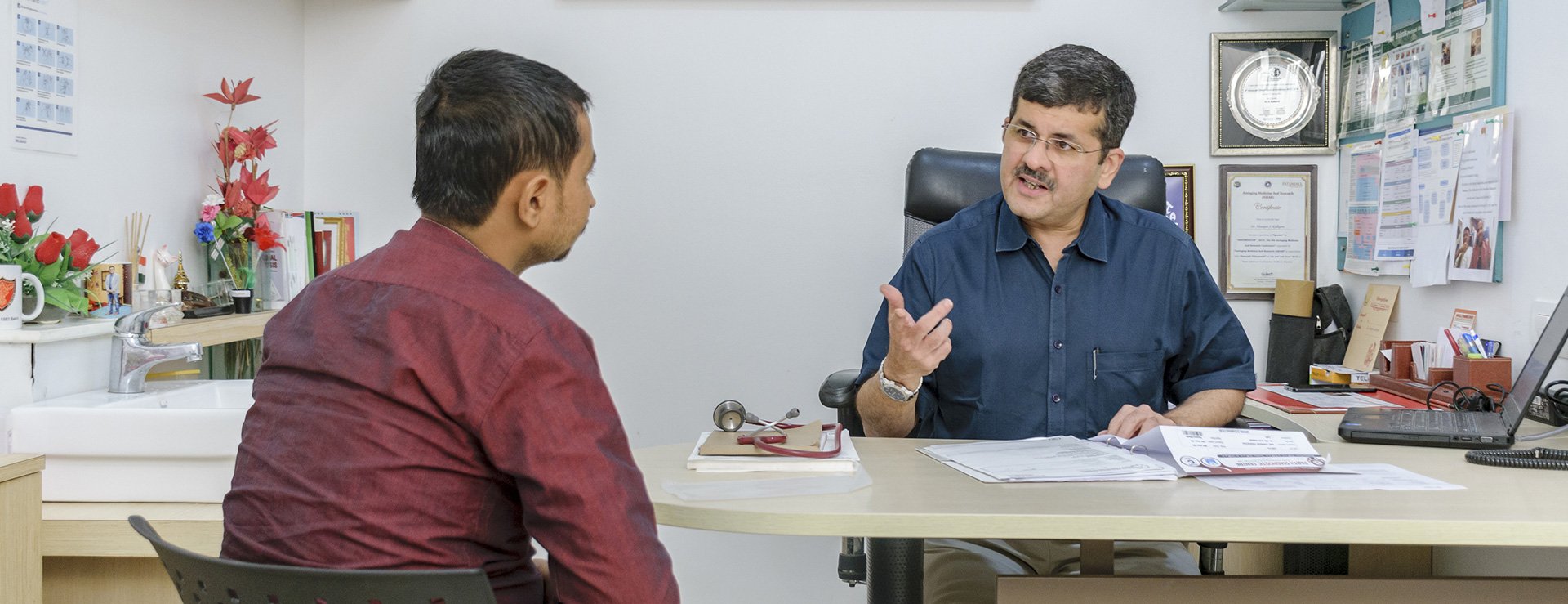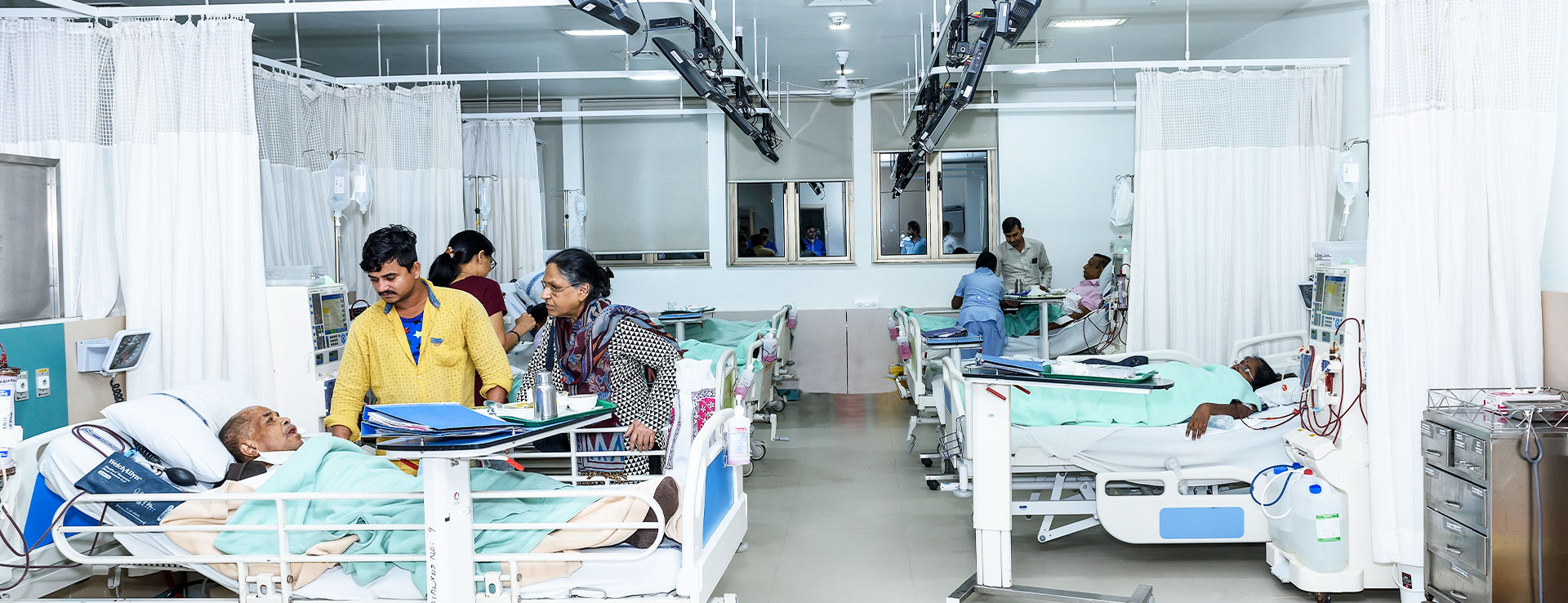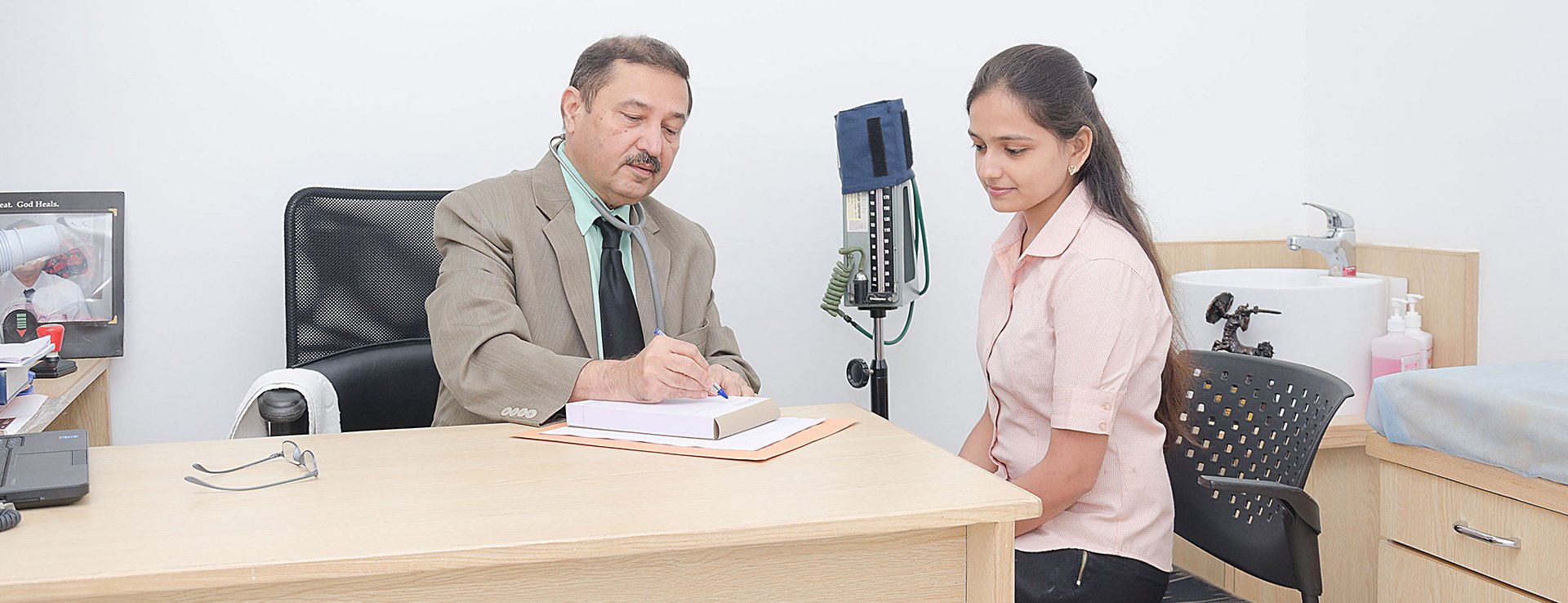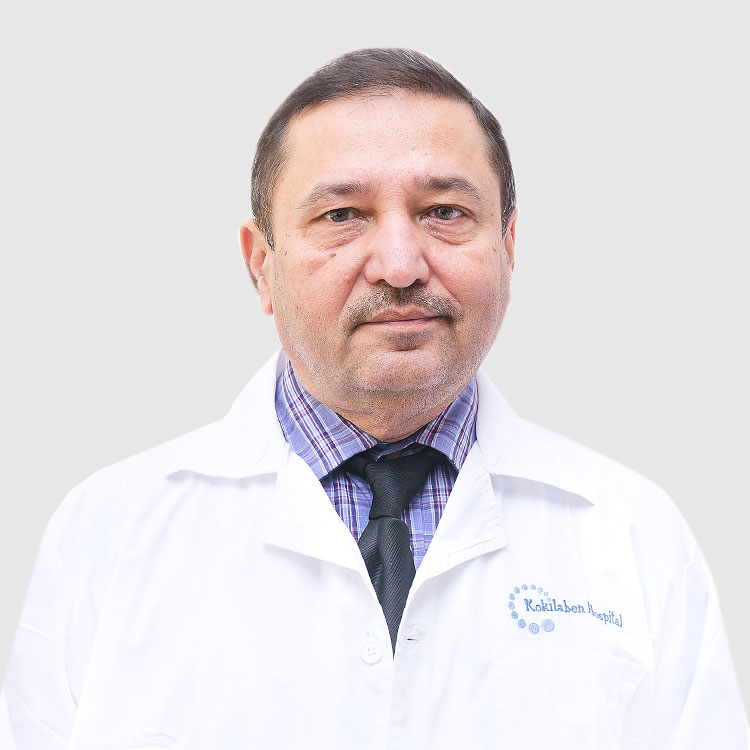
Nephrology


Nephrology

Nephrology


Nephrology

Nephrology
Kidneys are bean shaped organs about 10 to 12 cm in length situated on either side of the backbone. Each kidney comprises of approximately 1 million nephronswhich are the functional units, primarily involved in filtration of wastes besides many other functions.
CKD is an abnormality in kidney function of more than three months duration. This results in accumulation of waste products and water in the body. It is very often progressive with gradual worsening of the kidney function leading to end stage kidney disease necessitating dialysis or transplantation.
Some of the common causes are
Early stages may be without any symptoms. With increase in the accumulated wastes and water, symptoms may develop such as:
If you have high blood pressure or uncontrolled diabetes or a family history of kidney disease, you may be at risk for developing CKD. Periodic screening tests in such high risk group will help in early detection of CKD. Appropriate medical advice in early stages of CKD may prevent rapid deterioration of kidney function and delay dialysis.
Early stages of CKD are very often silent without any symptoms. The only way to know is by simple blood and urine tests that indicate the accumulation of wastes in blood or leakage of proteins/albumin in the urine. Some tests may have to be done at periodic intervals to track the level of your kidney function.
Most CKD patients require medicines to control Blood Pressure. In addition some may need diuretics to reduce the swelling of the body. People with Diabetes require controlling their blood sugar.
Some medications may have adverse effects on kidney function while some may require a dose alteration. It is best to discus with your doctor all the medicines with their doses.
Diet needs to be controlled. It should include less salt, water and low in proteins. Alcohol in small amounts may be permissible while smoking can worsen the kidney damage and steps to quit should be taken.
Some patients may continue with stable kidney function for years without requiring dialysis. Others may show relentless worsening and reach a stage necessitating dialysis.
There are two types of dialysis:
One of the treatment options available for patients with end stage kidney disease is a kidney transplant. This involves surgically implanting a functional kidney that may come from a living or a deceased donor. Following transplantation, patient needs to be on lifelong medications to improve its survival.
Kokilaben Hospital has one of the city’s largest dialysis unit, with latest technology, that provides all types of dialysis. Utmost care is given to quality with well trained and compassionate staff. A state-of-the-art water purification plant along with regular water tests ensures a continuous supply of ultra-pure water for dialysis.
Kokilaben Hospital has a dedicated transplant ward with nurses trained to provide the best post-transplant care. The entire transplant team is well trained with work experience in India as well as various other countries.
The centre boasts of specialists dedicated to each specialty as mentioned above, which include

Transplant/Kidney Transplant, Nephrology
Kidney Transplant and management of Renal conditions

Transplant/Kidney Transplant, Nephrology
Critical Care Nephrology, Hemodialysis and Transplantation
This appointment request is for regular consultation with the Doctor at Kokilaben Hospital. For online consultation, please CLICK HERE
Stay updated to all the latest news and offers at KDAH
